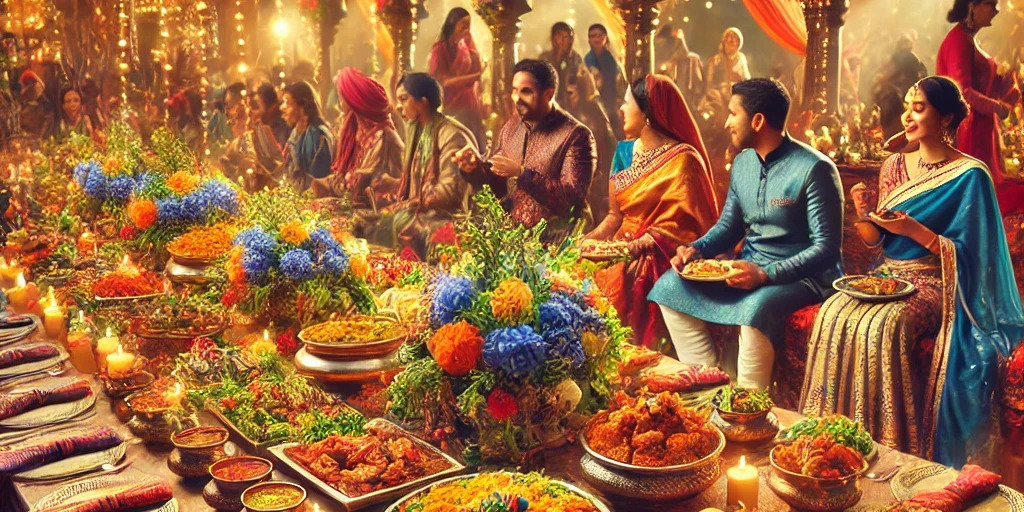Regional Delights: A Taste of India
India is a vast country with a culinary landscape as diverse as its geography. The food at an Indian wedding often reflects the couple's regional roots, offering guests an opportunity to savor authentic dishes from that specific culture.
- North India: Weddings in North India are synonymous with indulgence. Think creamy butter chicken, fragrant biryanis, stuffed naan, and an array of chaat (street food). Sweet treats like gulab jamun and jalebi add the perfect ending to a rich, flavorful meal.
- South India: A South Indian wedding might feature banana leaf platters piled high with dosa, idli, sambhar, rasam, and coconut-based curries. Desserts like payasam (a sweet milk pudding) complete the meal, leaving your taste buds delighted.
- West India: In Gujarat or Rajasthan, vegetarian cuisine takes center stage with dishes like dal baati churma, kachori, and the famous Gujarati thali—a collection of small, flavorful dishes served together.
- East India: Bengali weddings are renowned for their emphasis on fish and seafood, as well as their decadent sweets like sandesh and rasgulla. If you attend an Assamese wedding, expect a menu brimming with bamboo shoot dishes, pork curry, and rice delicacies.
Vegetarianism: A Celebration of Simplicity
No Alcohol? No Problem!
Interactive Food Stations and Live Counters
Dessert counters are equally impressive, with endless options ranging from traditional sweets to modern confections like chocolate fountains and fusion treats.
Culinary Inclusivity: A Guest for All Palates
Indian weddings also cater to the diverse palates of their guests. Whether you’re vegan, gluten-free, or have specific food preferences, there’s always something for everyone. Hosts go to great lengths to ensure their guests feel welcomed and well-fed, often curating menus that balance tradition with modern tastes.
As a guest at an Indian wedding, the food is not just a meal—it’s an essential part of the celebration, offering a window into the culture, history, and traditions of the family. Every dish tells a story, every flavor leaves an impression, and every bite becomes a memory.
So, if you’re lucky enough to attend an Indian wedding, come hungry and prepare to be amazed. It’s not just a feast for the stomach—it’s a feast for the soul.
What’s your favorite memory of an Indian wedding feast? Share on our Social Media @joinmywedding or send us an email to contact@joinmywedding.com.

